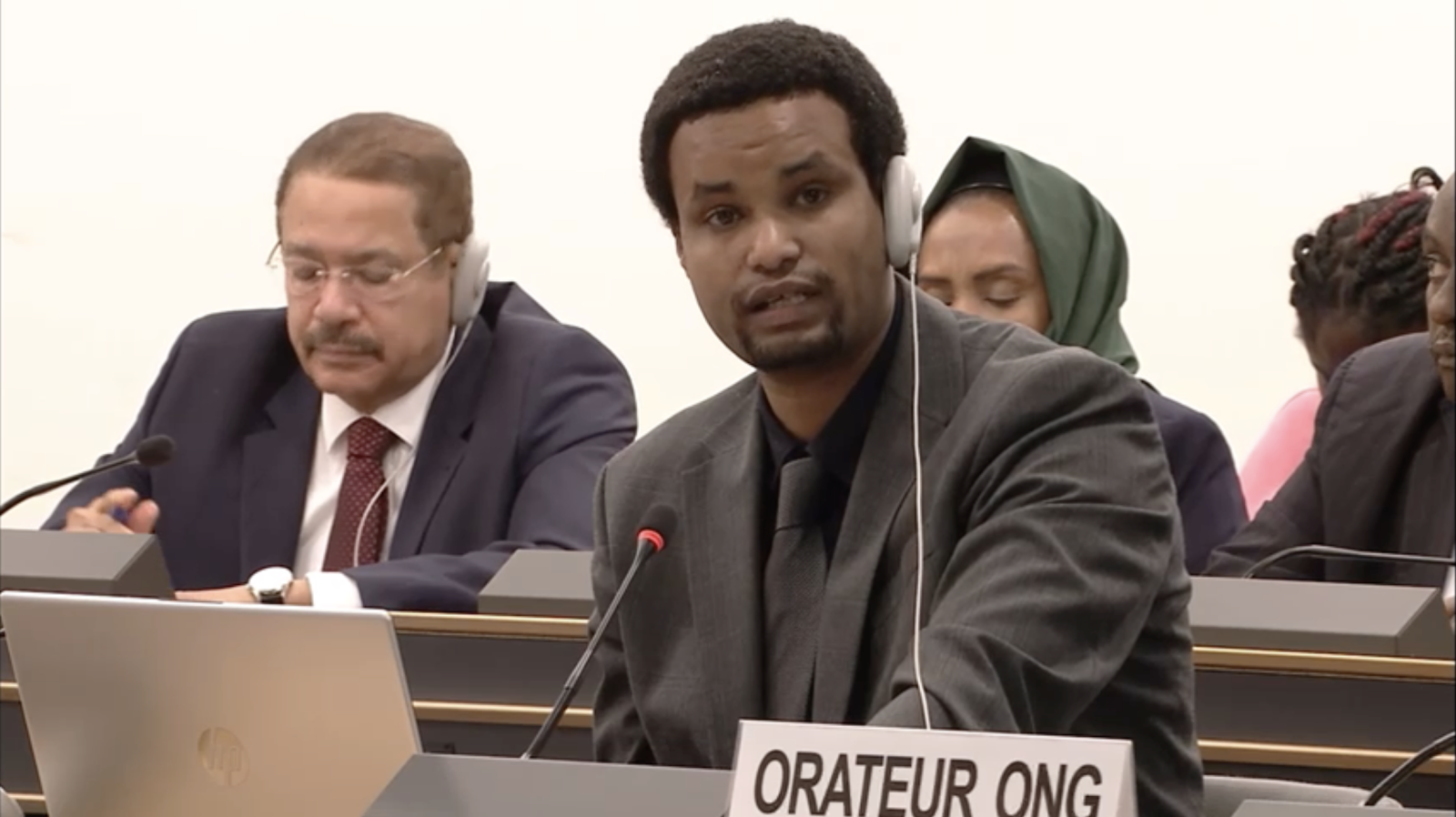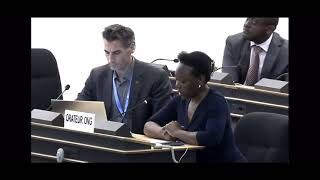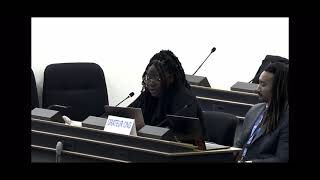
By Jamel Nampijja / GICJ
Introduction
Every August 31 the world comes together to celebrate the International Day for People of African Descent. Proclaimed by the UN General Assembly in resolution A/RES/75/170 adopted 16 December 2020, to honour the heritage, contributions, and resilience of people of African descent around the globe and whose human rights must be respected, protected, and fulfilled. The origins of the day reach back to Marcus Garvey’s 1920 First International Convention of Negro Peoples of the World, where the date was first celebrated as a day of unity among African diaspora communities. This observance builds on the work of the International Decade for People of African Descent (2015–2024), declared in resolution A/RES/68/237 on 23 December 2013, which centred on three pillars: Recognition, Justice, and Development. Recognizing both the progress and unfinished work, the UN proclaimed a Second International Decade (2025–2034) via resolution A/RES/79/193 adopted 17 December 2024, pledging renewed action to confront the legacies of slavery, colonialism, apartheid, and systemic racism around the world.
Why This Day Matters Today
People of African descent continue to face systemic discrimination and structural inequality in every region of the world. Racial profiling and police violence remain disproportionately high. Health outcomes for Afro-descendant communities reveal deep disparities. In many countries they lack equal access to education, employment, and political representation. The Permanent Forum on People of African Descent has issued reports emphasizing that colonialism, enslavement, and apartheid are not relics of the past—they continue to shape outcomes in violence, poverty, and marginalization today.
Underrepresentation in public life and absence of disaggregated data make it difficult to enact effective policy solutions. Afro-descendant women and youth are especially marginalized. The Day isn’t only about celebration,it’s about recognizing and confronting modern-day injustices and lifting up a community still battling the long shadows of historical trauma.
Ongoing Challenges:
People of African descent continue to endure systemic racism and violent discrimination worldwide. According to the United Nations Human Rights Council’s Report of the Permanent Forum on People of African Descent on its third session (A/HRC/54/71, September 2023), Afro-descendant communities face disproportionately high rates of police brutality and exposure to lethal force. In the United States, Black Americans are nearly three times more likely than white Americans to be killed by police. In Canada, Black populations similarly experience higher rates of police-related violence and systemic bias, contributing to long-term physical and mental health disparities.
Socio-economic inequalities remain a stark reality across the African diaspora. Educational attainment gaps continue to disadvantage Afro-descendant youth, who are less likely to access quality education or complete higher education. Unemployment rates reveal a deep disparity in labour market outcomes. In the United Kingdom, for example, the Office for National Statistics reported that in 2023, the unemployment rate among Black people stood at 8.3%, compared to 3.9% for white individuals. This gap reflects structural barriers in hiring practices, education systems, and career progression.
In the United States, the long shadow of slavery and systemic exclusion continues to shape economic outcomes. The Federal Reserve’s Survey of Consumer Finances (2019) revealed that Black households hold roughly 10–12% of the wealth held by white households. This wealth gap, rooted in centuries of exploitation and exclusion from asset-building opportunities such as home ownership and intergenerational inheritance, reflects persistent economic marginalisation. The result is unequal access to essential services such as healthcare, housing, and social mobility.
Cultural erasure and under-representation further marginalise Afro-descendant communities. Despite rich contributions to world history, art, and politics, these communities remain systemically excluded from public memory and institutional spaces. Studies from the Smithsonian Institution’s Office of Diversity, Equity, Accessibility, and Inclusion (2021) and Arts Council England highlight that less than 5% of exhibits in major Western museums represent African or Afro-diasporic histories.
In the realm of politics, the Inter-Parliamentary Union’s 2022 global report confirms that Afro-descendant representation in national legislatures remains significantly lower than their actual population proportions limiting their ability to influence policy and shape narratives. This exclusion perpetuates a lack of visibility and narrows the public understanding of Afro-descendant contributions and struggles.
2025 Theme: Justice for Africans and People of African Descent Through Reparations
Announced at the 37th Ordinary Assembly in Addis Ababa, Ethiopia, the African Union declared “Justice for Africans and People of African Descent Through Reparations” as the theme of 2025. This theme foregrounds reparatory justice as both moral reckoning and concrete redress for historical wrongs including enslavement, colonial exploitation, and apartheid. Framed by the Accra Reparations Conference of 2023, this theme urges transformation of the systems and institutions that perpetuated harm and economic extraction from African and diaspora communities.
By positioning reparations at the centre of its 2025 agenda, the AU aligns with global human rights imperatives and amplifies demands emerging during the first International Decade and the UN Permanent Forum on People of African Descent.
The Significance of the Theme
Reparations are more than financial compensation; they encompass debt cancellation, the return of stolen artifacts, the creation of development funds, equitable technology and educational transfers, reparative cultural initiatives and structural reforms to repair the racial and economic legacies of centuries of oppression. These align closely with global calls by Pan-African Congresses on Reparations and CARICOM, which frame reparations as a strategic imperative for the moral and economic dignity of Africans and Afro-descendants worldwide.
Moreover, reparations is a mechanism for transformative justice—seeking not just to mend history, but to change present-day structures of inequality. It foregrounds the legacies of slavery, colonial plunder, and apartheid as root causes of contemporary disparities in wealth, education, property, and rights.
Mechanisms for Restorative Justice
The Accra Reparations Conference
In November 2023, Ghana hosted the Accra Reparations Conference under the joint stewardship of the African Union and CARICOM. Delegates including government officials, scholars, activists, and diaspora representatives endorsed the Accra Proclamation, which called for the formation of a Global Reparation Fund and an African Committee of Experts on Reparations. This summit cemented a unified African and diaspora position and laid the groundwork for institutional structures to advance reparatory justice.
The Accra Proclamation directly inspired the African Union’s 2025 reparations theme, making justice through reparations the flagship programme of the Union. It demonstrated that coordinated regional leadership can transform abstract reparatory discourse into institutional commitments with global implications.
United Nations Action
The United Nations has adopted several mechanisms to support people of African descent. The Permanent Forum, launched in 2021, has convened regular sessions in Geneva and New York, offering a platform for States, experts, and communities to assess progress, share experiences, and advocate for policies addressing systemic racial injustice. During its fourth session in April 2025, participants including Colombia’s Vice President Francia Márquez urged former colonial powers to confront their histories and advocate a global reparations fund to address health, education, and systemic inequities. UN Secretary-General António Guterres and High Commissioner Volker Türk echoed calls to eliminate racial bias, including in emerging technologies such as AI.
On December 17, 2024, the UN proclaimed the Second International Decade for People of African Descent (2025–2034) through resolution 79/193. This decade renews the UN’s commitment to international frameworks such as the Durban Declaration, ICERD, and Basic Principles A/RES/60/147, mandating reparatory justice, legal accountability, and full realisation of rights for people of African descent everywhere.
Geneva International Centre for Justice Position
The International Day for People of African Descent is not merely symbolic; it is a moment to assert the human rights, dignity, and agency of a global community shaped by centuries of injustice. Through the 2025 theme of reparations, the conversation shifts from acknowledgment to action: reclaiming land, repatriating cultural heritage, cancelling debt, supporting community-led development, and dismantling structural racism. Justice is not about blame; it is about restoring equity. The UN, the African Union, CARICOM, civil society, and representative communities must act in partnership. Reparatory justice must be led by those most impacted, including Afro-descendant women and youth, whose voices have historically been overlooked. This is a collective moral obligation to ensure that centuries of suffering are met with concrete, forward-looking solutions. This year, let our observance carry renewed urgency: not just to commemorate, but to transform through reparatory justice, recognition of rights, and amplified voices of African descent.
GICJ’s Call to Action
Amplify Reparatory Dialogues
Encourage public education initiatives and global conversations that center on reparations. Support the drafting and adoption of a UN declaration on the human rights of people of African descent to guide national reparatory frameworks.
Support Institutional Mechanisms
Advocate for the operationalization of AU structures like the African Committee of Experts on Reparations and the Africa Reparations Fund, as envisioned in the AU’s 2025 agenda.
Invest in Local Communities
Promote and fund grassroots projects led by Afro-descendant communities including: cultural restoration, education, economic empowerment, truth-telling, and healing circles.
Hold Governments Accountable
Urge states to adopt domestic policies that address wealth inequality, equitable healthcare, educational parity, and fair access to political power.
Engage and Educate
On 31 August, host or participate in events such as films, exhibitions, panels, dialogues that elevate the heritage, resilience, and future ambitions of people of African descent. Use platforms to challenge dominant narratives and demand historical truth.
Reference:
Image: https://www.canva.com/design/DAGxD132L84/LG-a2WezC7zgCcQW2pKRXQ/edit
UN General Assembly Resolution A/RES/75/170 – International Day for People of African Descent
https://www.un.org/en/observances/african-descent-day
UN General Assembly Resolution A/RES/68/237 – International Decade for People of African Descent (2015–2024)
https://www.un.org/en/observances/decade-people-african-descent
UN General Assembly Resolution A/RES/79/193 – Second International Decade for People of African Descent (2025–2034)
https://digitallibrary.un.org/record/4028783
Basic Principles and Guidelines on the Right to a Remedy and Reparation for Victims of Gross Violations of International Human Rights Law (A/RES/60/147)
https://www.ohchr.org/en/instruments-mechanisms/instruments/basic-principles-and-guidelines-right-remedy-and-reparation
African Union Theme for 2025: “Justice for Africans and People of African Descent Through Reparations”
https://au.int/en/theme/2025
Canada.ca – Government of Canada Support for the UN Decade
https://www.canada.ca/en/employment-social-development/programs/social-development-partnerships/supporting-black-communities/international-decade.html
African Union. Accra Proclamation: Conference on Reparations and Racial Healing. Accra, Ghana, August 2023. https://au.int/en/pressreleases.
Arts Council England. Equality, Diversity and the Creative Case: Data Report 2021–22. London: Arts Council England, 2022. https://www.artscouncil.org.uk/publication/equality-diversity-and-creative-case.
Federal Reserve Board. Survey of Consumer Finances, 2019. Washington, D.C.: Board of Governors of the Federal Reserve System, 2020. https://www.federalreserve.gov/econres/scfindex.htm.
Inter-Parliamentary Union (IPU). Women in Parliament: 2022. Geneva: IPU, 2023. https://www.ipu.org/resources/publications.
Mapping Police Violence. Police Killings Report 2023. Accessed August 6, 2025. https://mappingpoliceviolence.org.
Office for National Statistics (UK). Labour Market Overview, UK: September 2023. London: ONS, 2023. https://www.ons.gov.uk.
Smithsonian Institution. Diversity, Equity, Accessibility, and Inclusion (DEAI) Strategic Plan. Washington, D.C.: Smithsonian Institution, 2021. https://www.si.edu/deai.
Report of the Special Rapporteur on contemporary forms of racism – Thematic Report on Intersectionality (A/HRC/59/62) https://docs.un.org/en/A/HRC/59/62







